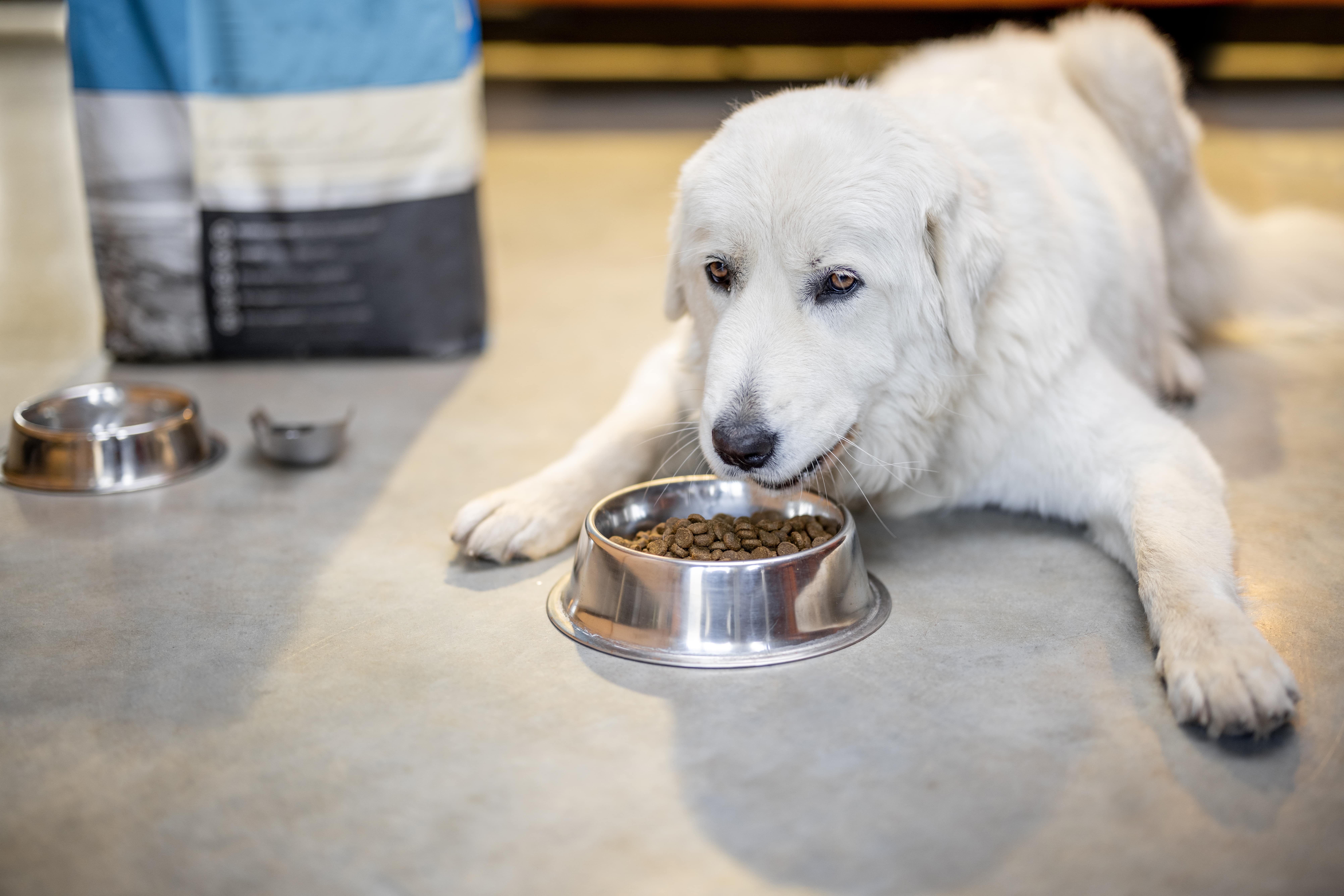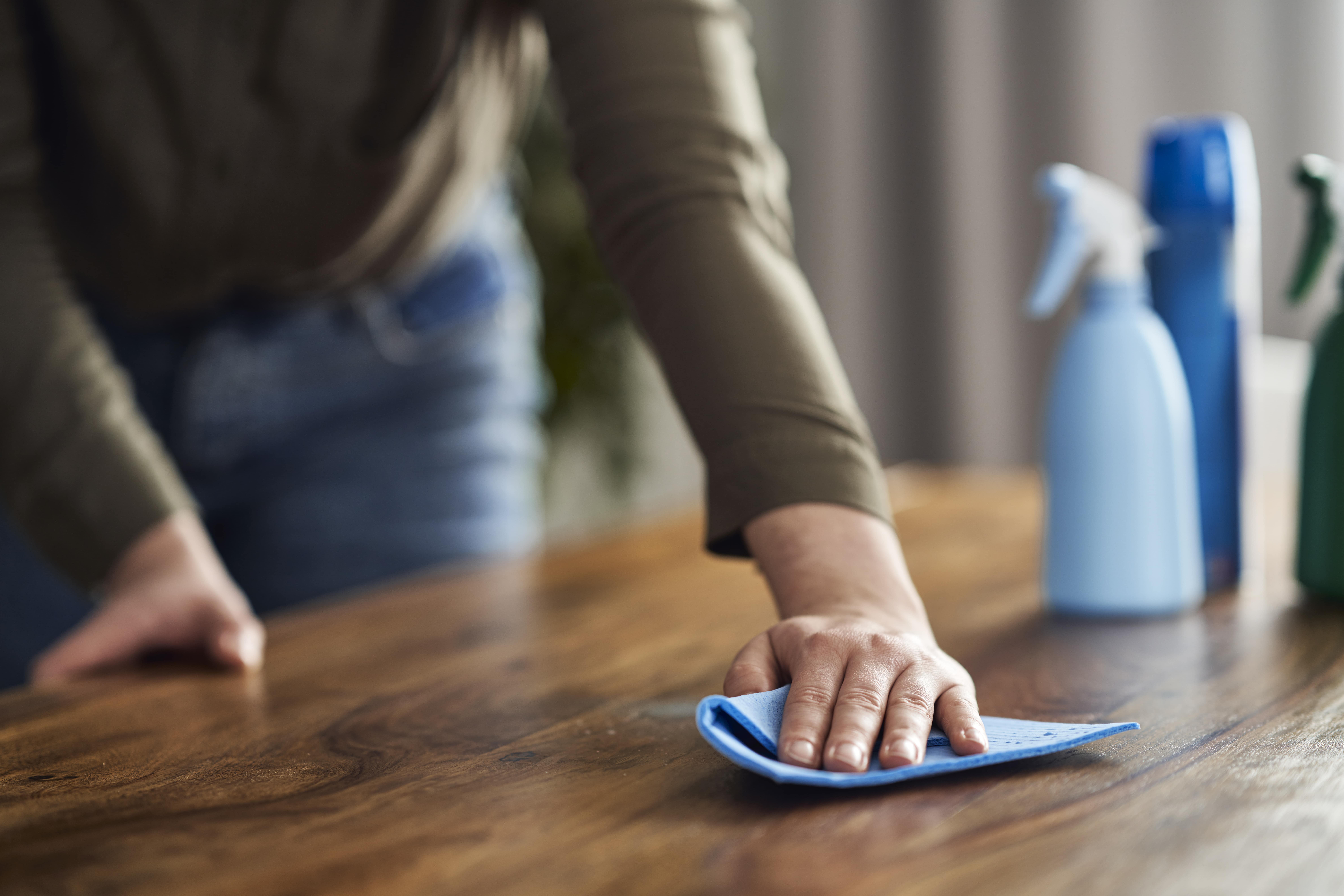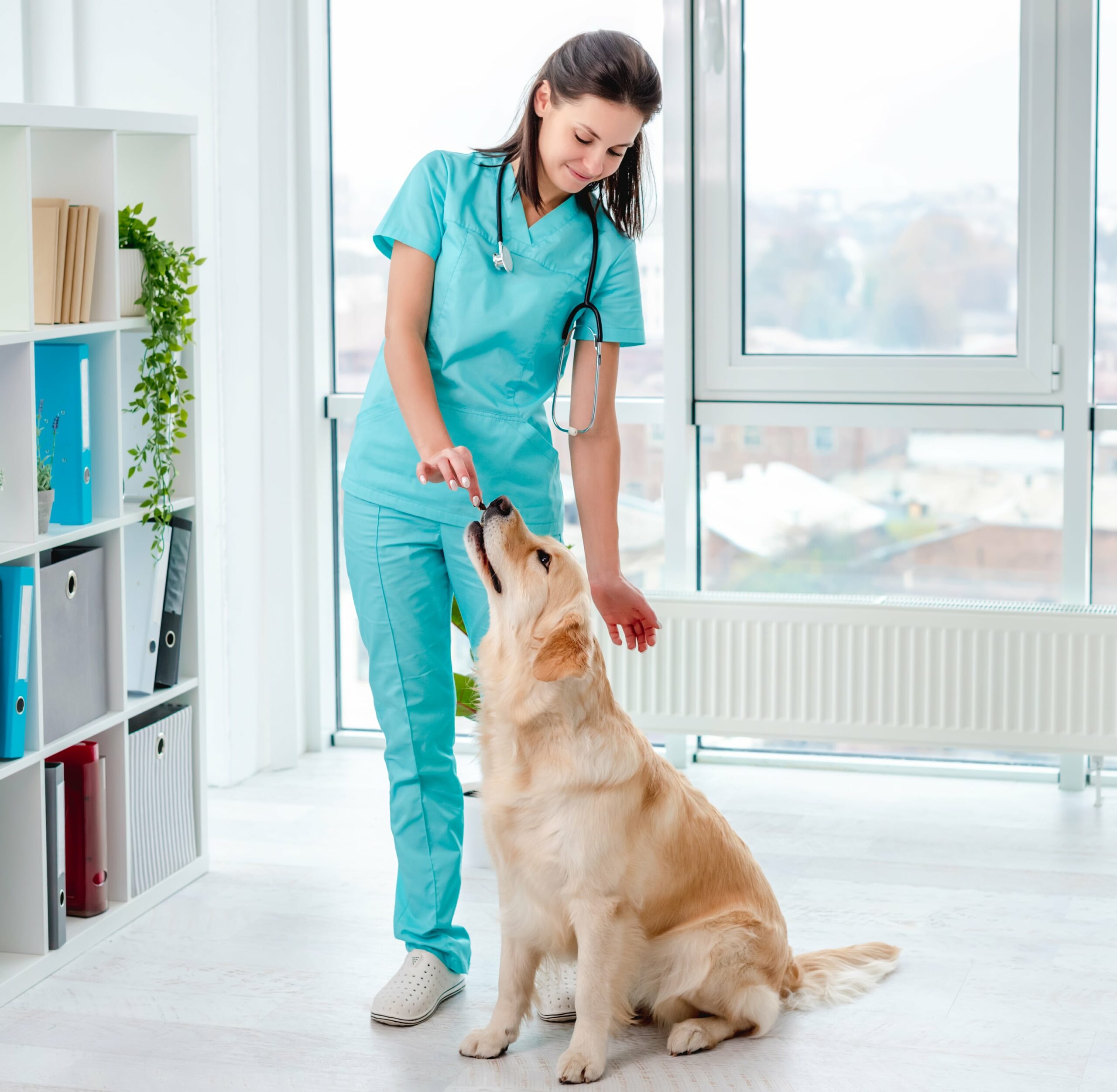Mice and rats may seem cute and harmless, but they can pose a serious threat to your pets. These small rodents can carry diseases and parasites that can transmit to dogs or cats through contact with their droppings or urine.
Mice tend to invade living areas in search of food, water, and shelter – all things that are found in abundance in our homes. A rodent problem is not only unsanitary but also risky for your beloved furry friends.
Explore Our Expert Rodent Control Services! Discover how our professional rodent control and removal services can effectively tackle your mouse infestation. Click to learn more about our professional rodent control and removal services!
Importance of Understanding the Harmful Effects of Mice on Pets

It’s crucial to understand how dangerous mice can be for pets because these tiny creatures can cause serious harm without pet owners noticing right away. Cats and dogs may hunt, kill or catch mice as part of their instinct, but this exposes them to even more risk of infection from contact with infected wild animals or rats.
Additionally, kittens and puppies are particularly vulnerable to the harmful effects of mice since their immune systems are not yet fully developed. By learning about these risks and taking preventative measures like using traps or sealing entry points in your home, you can protect your pets and children from potential illnesses caused by bacteria and parasites carried by mice.
If you notice any signs that your pet has been exposed to mice like vomiting, diarrhea, lethargy, or behavioral changes such as increased aggression or anxiety make sure you see a vet as soon as possible. In this article, we will cover tips on how to prevent mice from entering your home and what to do if you suspect that they have already invaded it.
The Dangers of Mice to Pets
Transmission of diseases through mouse droppings and urine

If you’re a pet owner, you’re probably aware that mice can carry a variety of diseases, which they can transmit to your furry friends. This is especially true if your pet has access to areas where mice leave droppings and urine – such as basements, garages, and attics. One of the most common diseases transmitted by mice is salmonellosis, a bacterial infection that can cause vomiting, diarrhea, fever, and other symptoms in both pets and humans.
Other diseases that can be transmitted by deer mice include hantavirus pulmonary syndrome (HPS), leptospirosis, and plague. If you suspect that your dog or your pet has been exposed to mouse droppings or urine – for example, if you’ve had recent mouse sightings in your home – it’s important to take action right away.
Avoid touching the animal droppings or urine with bare hands; instead, use gloves or a paper towel to clean them up. Make sure to disinfect the area thoroughly afterward using a pet-safe cleaning solution.
Risk of parasites and other health issues from consuming mice or their remains
Some pets have an innate instinct for hunting small animals like mice and rats – but this behavior comes with its own set of risks. If your cat or dog catches a mouse and bites it (or finds one already dead), they may be at risk for contracting certain parasites like tapeworms or roundworms that live in the intestines of rodents.
Additionally, consuming even small amounts of mouse remains (such as bones) can lead to health problems for your pets. Bones can splinter and cause blockages in the digestive tract; this is especially dangerous for small dogs or cats who may have difficulty passing the debris naturally.
To protect your pets from these risks, consider taking steps to discourage hunting behaviors around your dog’s food athome, and always keep rodent poisons out of reach of your animals. Encourage your pets to eat from sealed containers to prevent them from being attracted to the common source of food for rodents found in open dishes that can also harbor bacteria.
Signs that Your Pet Has Been Exposed to Mice
Physical Symptoms to Look For

Mice are known carriers of diseases that can impact your pet’s health. If you think your pet has come into contact with mice, you should be on the lookout for certain physical symptoms. These include vomiting, diarrhea, and lethargy.
If your pet is showing any of these signs, you must take them to the vet as soon as possible. The reason why vomiting and diarrhea are common symptoms of exposure to mice is that they can carry bacteria like Salmonella or Listeria in their urine and feces.
Pets can ingest the bacteria by coming into contact with contaminated surfaces or consuming infected rodents. Ingesting infected rodents could also lead to parasite infestation in pets which could further harm their health.
Behavioral Changes You Should Pay Attention To
In addition to physical symptoms, it’s also important to look out for behavioral changes in your pet if you suspect that they have been exposed to mice. One common behavioral change is increased aggression or anxiety towards other animals or humans. This could be a sign that your pet is feeling stressed or uncomfortable due to being exposed to a mouse problem.
Another possible behavioral change is a decrease in appetite caused by the stress of being around rodents, especially if there was a recent mouse sighting in the house or around where they eat regularly. You should closely monitor if this persists for more than 24 hours as it could indicate an underlying health issue caused by exposure.
It’s important for you as a pet owner to know what signs indicate whether your furry friend has been exposed to mice so you can take appropriate actions before things get worse and become a real threat! Keep an eye out for physical symptoms like vomiting, diarrhea, or lethargy, as well as behavioral changes such as increased aggression or anxiety. Be sure to contact your veterinarian if you notice any of these symptoms persisting over time, and always take steps to rid your home of mice and seal all entry points.
Preventing Mice from Entering Your Home
How to Keep Mice Away from Pet Food and Supplies
When it comes to protecting your pets from the potential dangers of mice, it’s essential to pay attention to their food and supplies. In our informative article on How to Keep Mice Away from Pet Food and Supplies, we delve into practical strategies for safeguarding your pet’s essentials.
One effective approach is to store pet food in airtight containers to eliminate enticing odors that might attract mice. Additionally, we discuss the importance of regularly inspecting and cleaning pet food storage areas to prevent infestations. By implementing these preventative measures, you can minimize the risk of mice infiltrating your pet’s food and supplies.
Risks and Precautions for Pets Exposed to Mice or Mouse Droppings
Pets that come into contact with mice or their droppings are susceptible to various health risks. Understanding these risks and taking appropriate precautions is crucial to safeguard your pet’s well-being. Our comprehensive article on Risks and Precautions for Pets Exposed to Mice or Mouse Droppings explores these concerns in detail.
We highlight the potential transmission of diseases through mice and their droppings, emphasizing the importance of keeping your pet’s environment clean and free from contamination. Additionally, we provide guidance on recognizing symptoms that may indicate your pet has been affected by mouse-related health issues. By staying informed and taking proactive measures, you can protect your pet from the risks associated with mice.
Training Cats and Dogs to Deter Mice
Did you know that your furry companions can play an active role in deterring mice? Training cats and dogs to help keep mice away is an effective and natural approach to pest control. Our article on Training Cats and Dogs to Deter Mice explores this fascinating topic.
We delve into techniques to encourage your pets’ natural hunting instincts, providing practical tips for training cats to chase and deter mice. For dog owners, we discuss strategies such as scent-based training to discourage mice from entering your home. Discover how you can utilize your pets’ innate abilities to create a mouse-free environment.
Safe and Pet-Friendly Mouse Control Methods
When dealing with mice, it’s important to consider the safety of your pets. Using pet-friendly mouse control methods ensures effective pest management without putting your furry friends at risk. Our informative article on Safe and Pet-Friendly Mouse Control Methods explores various approaches to achieve this balance.
We discuss alternatives to chemical-based mouse control, including natural deterrents, humane traps, and electronic repellents that are safe for pets. By implementing these methods, you can effectively address mouse infestations while prioritizing your pet’s well-being.
Monitoring and Protecting Pet Health in Mouse-Prone Areas
Living in mouse-prone areas presents unique challenges when it comes to protecting your pet’s health. In our comprehensive article on Monitoring and Protecting Pet Health in Mouse-Prone Areas, we provide valuable insights and practical advice for pet owners in such environments.
We explore the importance of regular check-ups with your veterinarian, especially if your pet has been exposed to mice or is displaying any concerning symptoms. Additionally, we discuss the significance of monitoring your pet’s behavior, diet, and overall well-being in mouse-prone areas. By remaining vigilant and proactive, you can ensure your pet’s health and happiness even in regions with high mouse activity.
Sealing Entry Points in Your Home

One of the most effective ways to prevent a mouse infestation in your home is to block off their entry points. Mice can fit through small gaps and cracks, so it’s important to carefully inspect the exterior of your home and seal any openings you find.
Pay close attention to areas where pipes or wires enter your home, as these are common entry points for mice. You can use materials like caulk, expanding foam, or steel wool to seal gaps and make it difficult for mice to enter.
Keeping Food Sources Inaccessible to Mice

Mice are attracted to food sources like crumbs, spilled pet food, and unsecured garbage cans. To prevent mice from being drawn into your home, it’s important to keep these food sources inaccessible. Make sure all food is stored in airtight containers or sealed bags, and clean up any spills or crumbs immediately.
Be sure to regularly take out the trash and secure garbage cans with tight-fitting lids. In addition, consider using peppermint oil as a natural mouse repellent.
The scent and smell of peppermint oil are unpleasant for mice and can help deter them from entering your home. Simply soak cotton balls in peppermint oil and place them around the perimeter of your home or near entry points.
Consider using traps instead of rodent poisons if you need to catch mice that have already entered your home. Rodent poisons can be dangerous for pets, children, pregnant women, and other animals that may come into contact with infected animals or eat poisoned rodents.
Traps are a safer alternative that can effectively trap and kill mice without putting humans or other animals at risk. By using mouse traps and taking these preventative measures against rodents like mice who carry diseases such as bacteria that causes bubonic plague among others, you can protect both your pets and your entire household from the harmful effects of a mouse infestation.
Protecting Your Pet from Mice
Regularly cleaning and disinfecting areas where pets eat and sleep

As much as you try to keep your home tidy, mice can still find their way in. Once they’re in your house, they might start to roam around your dog or pet’s food and water dishes or even burrow in their bedding. That’s why it is important to clean these areas regularly.
Start by wiping down the surfaces with a damp cloth or paper towel. Then use a disinfectant spray or wipe specifically formulated for pet areas.
This will not only decrease the rodent population’s chance of bacteria growth but will also help deter mice from returning. If you feed your pet wet dog food again, be sure to remove any uneaten leftovers immediately after feeding.
Wet dog food can be particularly attractive to rodents and can attract them into your home if left out for too long. Additionally, if you store dry pet or dog food out in plastic containers, check them regularly for signs of chewing and holes that could indicate a mouse infestation.
Using pet-safe pest control methods
When trying to trap or get rid of mice, it is important not to use harmful chemicals or traps that could harm your children or pet. Instead of trap, try using natural deterrents like peppermint oil or placing cotton balls soaked in vinegar near entrances where mice might come through.
If you do need more aggressive measures taken against these pests, talk with your vet about safe pest control options for pets and other birds. Insects like fleas and ticks carry diseases that can harm and kill our furry friends just as much as rodents do; therefore it is essential always to consult with an expert before using any pesticides around animals.
Also, remember that animal bites are common when attempting to remove small mammals like rodents from living areas; therefore take precautionary measures such as wearing gloves when handling traps or dead rodents. Taking care of our pets must include protecting them from the dangers that come with rodent infestations.
Regular cleaning and disinfecting, combined with pet-safe pest control measures, can help keep your pets safe and healthy. By following these preventative steps, your home will remain free of pests like mice and other potentially dangerous rodents that could harm both you and your furry friends.
Conclusion
Recap of key points about the dangers of mice to pets
Mice pose a serious threat to the health and well-being of your furry friends. They are carriers of dangerous diseases like the bubonic plague, which can be transmitted to dogs through bites or fleas and cause severe bacterial infections.
Additionally, pets who consume mice or their remains can be exposed to parasites and other health issues. Signs that your pet may have been exposed to mice include physical symptoms like vomiting and lethargy, as well as behavioral changes like increased aggression or anxiety.
Importance of taking preventative measures to protect your furry friends
Pet owners must take proactive steps to protect their pets from the potential dangers posed by mice. This includes sealing entry points in your home, keeping food sources inaccessible to pests, regularly cleaning and disinfecting areas where pets eat and sleep, and using pet-safe pest control methods. These measures not only protect pets but also help prevent infestations in your house.
A Final Thought: A Safe Home for All Your Animals
While it’s essential to take precautions against mouse infestations for the safety of our beloved cats and dogs, it’s important not to forget about other animals living under our roof. For instance, birds may be more susceptible spread disease than mammals when it comes to smelling mouse droppings due to their sensitive respiratory systems.
Some rodents will eat wet food left out for household animals too – so make sure all foods are kept in a sealed container! By taking these preventive measures seriously we can create a safer environment for all animals living with us at home.
Thank you for reading this article about how mice affect our pet’s health! We hope you found this information helpful in learning more about how pests can impact our furry friends’ safety.
Remember that by staying aware and vigilant against potential infestations, you can help keep your house mice and pet ownership both safe and healthy. This article is reader-supported, and we appreciate your ongoing support in helping us bring you high-quality content on important topics like this.
Frequently Asked Questions:
Mice can potentially harm pets, depending on factors such as the size of the pet and the presence of aggressive or disease-carrying mice.
Dogs can get sick from being around mice, especially if they ingest them or come into contact with their droppings.
Yes, animals can become sick from mice due to potential transmission of diseases, parasites, or allergens.
Cats can become sick from mouse droppings, as they may contain bacteria, parasites, or other pathogens that can cause illness in cats.
If you found this article thought-provoking, you might also appreciate these related writings:
Mouse Infestation Eradication: Why Hiring a Professional Exterminator Is Your Best Bet








